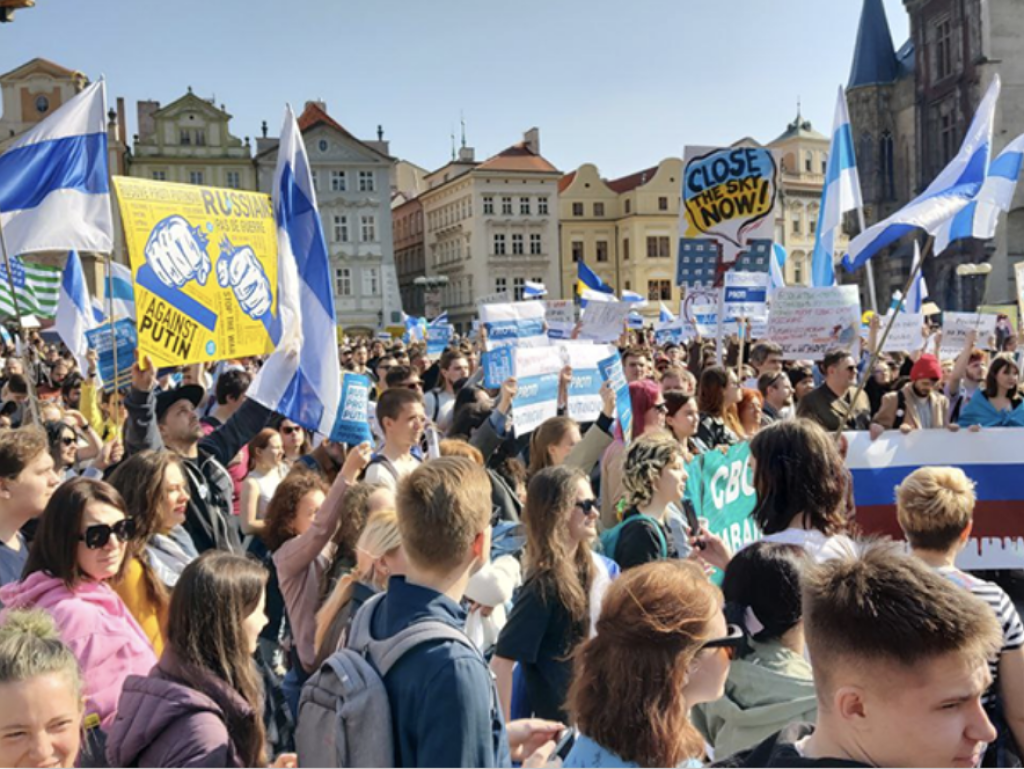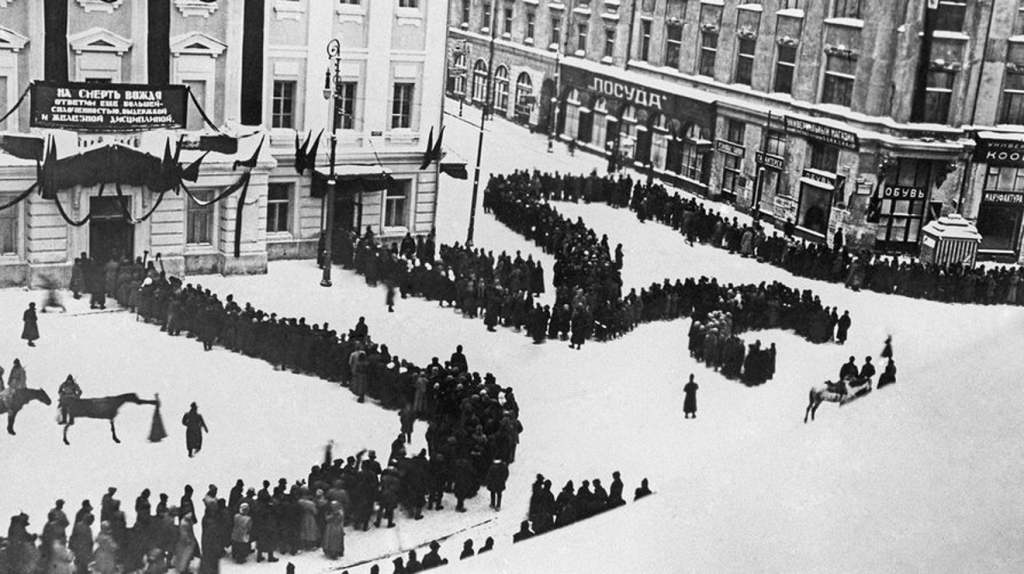This event is online only.
Join us for a meeting of the New York-Russia Public Policy Series, co-hosted by the Harriman Institute at Columbia University and the New York University Jordan Center for the Advanced Study of Russia.
In the wake of Russia’s full-scale invasion of Ukraine, hundreds of thousands of Russians, mostly young and educated, sought refuge abroad. This recent surge in emigration is an addition to the millions who had already left Russia during Vladimir Putin’s regime. Our expert panel will discuss the transformation of the Russian diaspora due to these new exiles, explore their political views and the role they could play in shaping Russia’s future, and consider the international implications of this historic mass departure.
This event is supported by a grant from Carnegie Corporation of New York.
Register for the Zoom webinar. Watch on YouTube.
Speakers
Margarita Zavadskaya, Senior Research Fellow at the Finnish Institute of International Affairs
Ivetta Sergeeva, Visiting Scholar at the Harriman Institute, Columbia University; PhD Candidate in the Department of Political and Social Sciences at the European University Institute, Florence.
Elizaveta Osetinskaya, Award-winning investigative reporter and editor
Erik R. Scott, Associate Professor of History and the director of the Center for Russian, East European, and Eurasian Studies at the University of Kansas.
Moderated by:
Joshua Tucker, Director of the Jordan Center for the Advanced Study of Russia at New York University
Anton Shirikov, Postdoctoral Research Scholar in Russian Politics, Harriman Institute
Margarita Zavadskaya is a Senior Research Fellow at the Finnish Institute of International Affairs. Her research has examined the role of elections in authoritarian states, mass protests, and public opinion, and currently, she focuses on the political impact of Russian emigration in receiving countries, including EU member states. Dr. Zavadskaya has broadly published in journals such as Democratization, East European Politics, Post-Soviet Affairs, Russian Politics, and Europe-Asia Studies. She is the editor of the book Politics of the Pandemic: Blame Game and Governance in Russian and Central-Eastern Europe (forthcoming) and co-editor of Electoral Integrity and Political Regimes: Actors, Strategies and Consequences (Routledge, 2018). Previously, she worked at the Electoral Integrity Project (Universities of Harvard and Sydney, 2015), the European University at St. Petersburg (2016-2022), and the Aleksanteri Institute at the University of Helsinki (2018-2022) as a researcher and lecturer. She holds a Ph.D. in Social and Political Sciences from the European University Institute.
Ivetta Sergeeva is a visiting scholar at the Harriman Institute, Columbia University, and a PhD Candidate in the Department of Political and Social Sciences at the European University Institute, Florence. She has also been a visiting researcher at the University of California, Berkeley. She studies political behavior, civil society, and migration and is a co-founder of two research projects: OutRush, a panel survey of Russian political migrants, and Violence Monitor, a national survey on intimate partner violence in Russia. Her research has been featured in the Financial Times, Al Jazeera, Deutsche Welle, BBC, CNBC, Fortune, and The Moscow Times. She also has extensive experience supervising projects in civil society and human rights organizations in Russia. She has an MA in Political and Social Sciences from the European University Institute and an MA in Political Science from the European University at Saint Petersburg.
Elizaveta Osetinskaya is an award-winning investigative reporter and editor with more than 20 years of experience in Russian newsrooms. She is the founder of TheBell.io, a digital media outlet for global-minded Russians, and previously, she was the editor-in-chief at Forbes Russia, Vedomosti (a joint venture between the Financial Times and The Wall Street Journal), and RBC, one of the leading Russian media companies. Recently, she was a Fellow at the Graduate Journalism School at the University of California, Berkeley (2017-19) and a John S. Knight Fellow at Stanford University (2016). She has been honored as a Young Global Leader (2013) by the World Economic Forum. She has a BA in economics from Moscow State University and an MBA from Kingston University, London.
Erik R. Scott is an Associate Professor of History and the director of the Center for Russian, East European, and Eurasian Studies at the University of Kansas. He is a historian of modern Russia, the Soviet Union, and the global Cold War. His work examines migration, diaspora, and empire within and beyond the borders of Russia and Eurasia. He is the author of Familiar Strangers: The Georgian Diaspora and the Evolution of the Soviet Empire (Oxford University Press, 2016) and Defectors: How the Illicit Flight of Soviet Citizens Built the Borders of the Cold War World (OUP, 2023), and he has published in Kritika: Explorations in Russian and Eurasian History, Past & Present, and other journals. Dr. Scott has held research fellowships at the Kennan Institute of the Woodrow Wilson International Center for Scholars and Georgetown University’s Center for Eurasian, Russian, and East European Studies. He has been awarded grants from the National Endowment for the Humanities, the American Council of Learned Societies, the American Philosophical Society, and Fulbright-Hays, among others. Since 2020, he has been the editor of The Russian Review. He earned his Ph.D. from the University of California, Berkeley.


